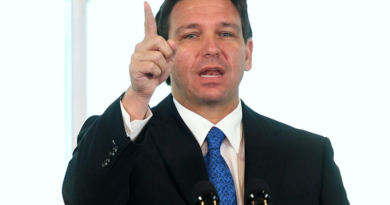International Battery Company powers up with $35M funding to bridge EV gap in India
International Battery Company, a startup developing lithium-ion battery cells for electric vehicles, has raised $35 million as it plans to bridge the demand-supply gap in the growing EV market in India.
Led by RTP Global, the pre-Series A round saw participation from Beenext, Veda VC and various strategic Korean and U.S. investors. It comes ahead of a bigger round in which the startup is looking to raise around $70 million, TechCrunch exclusively learned and confirmed.
India is home to more than 3.5 million EVs, with nearly half of them being electric two-wheelers and less than 10% four-wheelers, while the rest consist of e-rickshaws, three-wheelers and a small number of electric buses, per the data available on the Indian government’s Vahan portal. The numbers are insignificant, as more than 23 million vehicles were sold in the country in 2023 alone.
However, the share of EVs in the market is expected to grow thanks to new regulations and incentives offered to manufacturers. New Delhi aims to limit internal combustion engine (ICE) vehicles by electrifying 30% of its entire four-wheeler base and 80% of its two- and three-wheeler market by 2030.
International Battery Company sees an opportunity in that shift.
Currently, EV batteries used in the Indian market are imported — mainly from China — leading to safety and sustainability concerns. These battery packs are not designed adequately based on local conditions nor appropriately manufactured to withstand wear and tear. This has even led to some instances of electric two-wheelers catching fire. International Battery Company touts to address these issues and fulfill both the current and projected demand of EV batteries in the country with its in-house Li-ion battery cells.
“There is a lot of demand in the Indian market, which is satisfied through imports right now. No cells are being manufactured in India. So, we want to participate in that journey in India,” Priyadarshi Panda, founder and CEO of International Battery Company, told TechCrunch in an interview.
Setting up stage for local manufacturing
The Delaware-headquartered startup, which was founded by Panda in 2022, specializes in manufacturing its large-sized rechargeable Prismatic Li-ion Nickel Manganese Cobalt (NMC) batteries. The startup is targeting the small mobility sector comprising two- and three-wheelers, light commercial vehicles (LCV), and farm and industry equipment.
The startup researches and develops its battery technology in Silicon Valley and produces Li-ion cells at its 50MWh capacity manufacturing plant in South Korea, which are specifically designed for the Indian market — meeting the requirements to operate safely in high temperatures, support fast-charging capabilities and offer extended lifecycles, with a 7- to 10-year warranty.
The facility, which produces United Nations 38.3 standard-based Li-ion NMC battery cells that are fully recyclable and reusable, helped the startup make its first commercial shipment this month. The startup received certification from India’s standard body, the Bureau of Indian Standards (BIS), in December to start selling its EV battery cells in the country.
Alongside manufacturing in South Korea, International Battery Company signed a memorandum of understanding with the government in the southern state of Karnataka last year to build a 10GWh facility in Bengaluru by 2028. The startup initially looks to build a 2GWh facility in the state by 2025 spread across 100 acres that will be a “copy exact” of its existing Korean factory.
Panda, an IIT Kanpur and MIT alumnus who worked as a senior process engineer at Intel, productivity lead at Lam Research and a director at Applied Materials, has more than 980 worldwide citations from seven research publications and 12 granted U.S. patents. He has previously helped establish a Prismatic phosphate-based lithium-ion gigafactory in New York and a Prismatic lithium-ion NMC factory in Korea. Based on his experience, the executive plans to develop International Battery Company’s facility in India.
The startup has already started conversations with investors on raising its Series A round of around $70 million to execute plans to build its gigafactory in India, TechCrunch learned.
When asked, Panda confirmed the additional fundraising plans. He stated the startup would attain 30% to 50% of its $35 million funding goal with its product being qualified and reaching initial customers. The rest of its funding aims to develop a data system with AI and ML algorithms to improve yield — before getting to the next round.
“As the funding is a long process, we are trying to just feel the market, see who would be the right kind of partners to primarily enable the execution plan of the India gigafactory,” he said. “We are proactively preparing for the execution of building the gigafactory in India, which we will do with the additional fundraising.”
Distinctive edge
Notably, International Battery Company is not alone in building Li-ion battery facilities in India. Companies including the Indian salt-to-software conglomerate Tata Group, South Korean carmaker Hyundai, Vietnamese EV maker VinFast and Bengaluru-based electric two-wheeler manufacturer Ola Electric have also announced their plans to build EV battery facilities in the country. Similarly, the global EV market has BYD, LG Energy Solution, SK Innovation, and Panasonic, among major companies, in battery manufacturing. Nonetheless, Panda said International Battery Company’s approach of being Li-ion product company makes them different from the competition, as it designs cells keeping in mind the requirements of Indian consumers.
“We are an ecosystem participant, along with other players who have announced plans for building Li-ion cell gigafactories in India. And together, we will enable solutions for the end customers… and together we can bring the upstream value chain, be it the powders, separators, electrolyte, all the components, the entire value chain in EV,” Panda said.
The product-oriented approach by International Battery Company convinced RTP Global to close the deal amid the ongoing market slowdown and a growing trend where VC firms largely avoid putting millions of dollars into startups yet to generate revenues.
“Many people have been trying to build batteries for India in the last four or five years, even the big guys. But there hasn’t been any meaningful production at this stage that anybody has been able to reach out to because it’s a very, very complex product,” Nishit Garg, partner at RTP Global, told TechCrunch. “The [International Battery Company] founders, and the way they have approached so far is just very different from a lot of others. They have been grounded and are quite focused on execution rather than making news about it.”
The initial target of International Battery Company is to serve customers in India, and it has already started working with two of the three customers on board that are in the two- and three-wheeler segments. In the next round, Panda told TechCrunch the plan is to work with industrial and farm equipment manufacturers. Based on these learnings, the startup looks to gradually develop battery cells for the large mobility segment, beginning with buses and trucks and later expanding to electric cars. It also aspires to expand its horizons beyond India as it progresses.
“Once we, with a focused approach, penetrate and provide compelling solutions to the customer base in India, primarily in the small mobility sector, be in the two-wheeler, three-wheeler, LCV, farm and industry equipment, then we will look at other markets such as Korea, North America, and Europe,” Panda said.
Although the executive did not disclose the names of any customers, International Battery Company mentioned in one of its recent presentations to investors, which TechCrunch separately reviewed, that it counts two-wheeler makers Ather Energy, River and Matter, three-wheeler manufacturer Euler Motors, EV charging tech startup Exponent Energy and carmaker Hyundai among a few other companies in its customer pipeline. The startup also projects to generate an annual revenue of $350 million in the second phase of its operations between December 2024 and 2025, with the 2GWh production facility, per the details available in its investors’ deck.
As some companies have been exploring alternatives of Li-ion batteries for EVs to reduce dependence on lithium and are researching sodium-ion cells as a potential solution, International Battery Company is also doing its R&D on the subject in the U.S.
“The fundamental integration is very similar to lithium-ion. So with the maturity of the technology and the markets really calling for it, we would be cognizant of it and very likely to be able to build sodium-ion solutions as well,” Panda said.
Panda is joined by co-founders Raj Singh (CRO), Venkatesh Valluri (president), and Sasi Kuppannagari (COO). The startup has a headcount of 100 people, including 75 running its operations in South Korea and 10–12 full-time employees and consultants in the U.S. It is currently hiring in India to expand its local team of half a dozen people.



